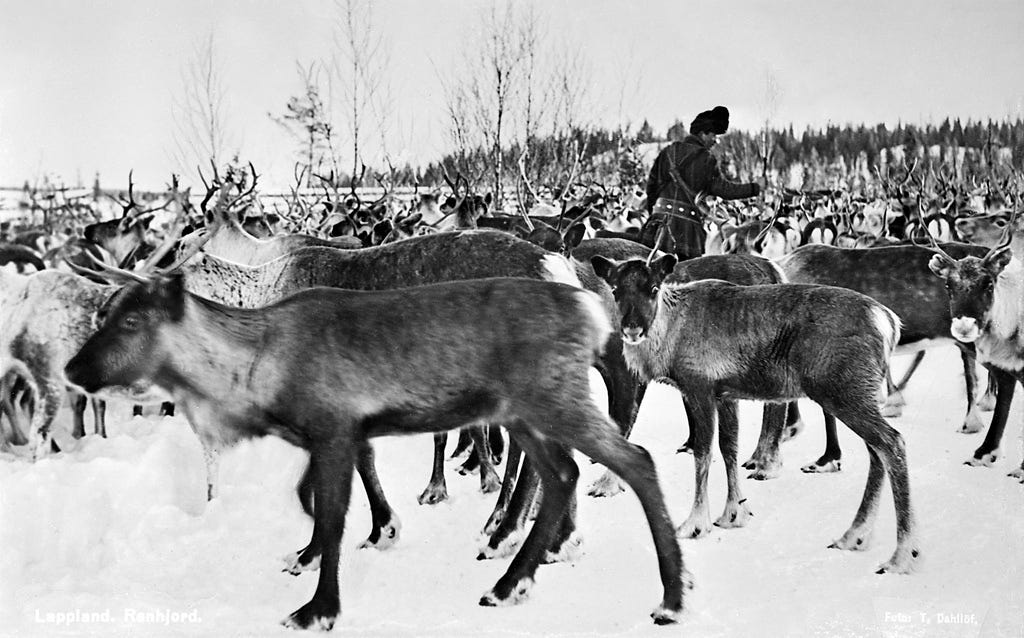Languages and nature, hubris and Audiard's comments about Spanish
A recap of the latest language news plus what to read, watch and listen to

Thank you for subscribing to Beyond Words! In this newsletter, you’ll find a compilation of the latest linguistic news from around the world as well as a list of what we’ve been reading, writing, watching and listening to. To keep it going, we’ve decided to introduce a paywall. From now on, to access the full newsletter we will be asking you to pitch in a few euros each month (annoyingly Substack’s minimum is 5€). We hope you will choose to subscribe to support our work, and if you can’t, that you will keep enjoying some of the newsletter for free!
Art vs science, culture vs nature. We often see these as stark opposites. But in my latest piece for Noema magazine, I write about how they’re much closer than we think. Most of the world’s languages, and their associated cultures, are deeply tied to the land. And when their environment suffers, so do the languages themselves. Scientists and linguists have found that in places where plant and animal species are disappearing, languages, dialects, and unique expressions often follow a similar pattern of decline. Thank you to Hao Nguyen for including the piece in his newsletter Longread Profiles.
You may have heard that one of the world’s 7,000 languages dies every two weeks. Well, it turns out it’s not quite that simple. But in any case, things aren’t looking good for the world’s tongues (estimates that half will have died by the end of the century have been called “optimistic”). One such critically endangered language, Haíɫzaqvḷa, which only has seven native speakers left in British Columbia, is the subject of this short Guardian documentary, which follows several people in a community as they race against time to save it. It’s a sad story, but there is also a glimpse of hope. A teenager called Marvin is seen using a digital language-learning tool and, in fact, a growing number of people are using digital tools and resources, such as Wikitongues, to learn and document languages online. Some are turning to AI (despite plenty of scepticism), while others are digging up old cassettes.
The Mexico-set musical Emilia Pérez is leading this year’s Oscars with 13 nominations, but the film has been at the centre of a growing backlash (mostly due to offensive tweets made in 2016 by its star, Karla Sofía Gascón). Interestingly, the drama about Gascón has shifted attention away from director Jacques Audiard’s own controversial comments. Internet sleuths recently unearthed an interview with the filmmaker in which he called Spanish “a language of the poor”. “Spanish is a language of emerging countries, a language of modest countries, of poor people, of migrants…”, he told the French site Konbini back in August. El País pointed out that Audiard’s clumsy remarks worryingly resemble Trump’s, who, upon taking office, promptly shut down the Spanish-language version of the official White House website. (Trump has criticised the use of Spanish plenty of times, but has also been known to pepper his speeches with words like “perfecto”, “loco” and “silencio”.)
Audiard’s choice of words also beg the question: as opposed to what? French, the language of the rich? The French (or Parisian) establishment likes to think of France as the country safeguarding a “standard” version of French, though the country has been steadily losing influence within the Francophonie and in Africa, where there are now more French speakers than in France. At the same time, countries like Burkina Faso, Mali, and Algeria are reviewing their dependence on the colonial language. In Senegal, as the influence of French is waning, it’s actually giving way to local languages.
Keep reading with a 7-day free trial
Subscribe to Beyond Words to keep reading this post and get 7 days of free access to the full post archives.



